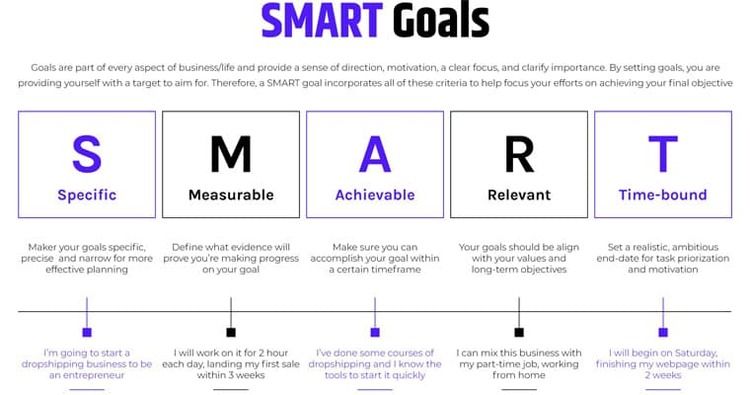
SMART goals are a popular framework for setting clear and achievable objectives.
The term "SMART" stands for Specific, Measurable, Achievable, Relevant, and Time-bound.
Here's a breakdown of each component:
Specific: Make your goal clear and well-defined. Be precise about what you want to accomplish, avoiding vague language. Ask yourself the five "W" questions: What do I want to achieve? Why is it important? Who is involved? Where will it take place? Which resources or limits are involved?
Measurable: Set criteria to measure your progress and determine if you have achieved the goal. Quantify your goal with numbers or specific metrics. This helps you track your progress and stay motivated.
Achievable: Ensure that your goal is realistic and attainable. While it's good to set ambitious targets, setting an impossible goal will only lead to frustration. Consider the resources, skills, and time available to you.
Relevant: Align your goal with your overall objectives and values. Ensure that your goal is relevant to your broader aspirations and supports your personal or professional growth.
Time-bound: Set a deadline for achieving your goal. A timeline creates a sense of urgency and helps you stay focused. Make sure the timeframe is reasonable and realistic based on the complexity of the goal.
To write a SMART goal, combine all these elements into a clear statement. For example: "By the end of this quarter, I will increase my monthly sales by 15% through targeted marketing efforts aimed at attracting new customers within the age range of 25-35."
Remember that writing SMART goals is just the beginning. Regularly review your progress, adjust your approach if needed, and celebrate your achievements along the way. Good luck!







Join the discussion
0 Comment(s)